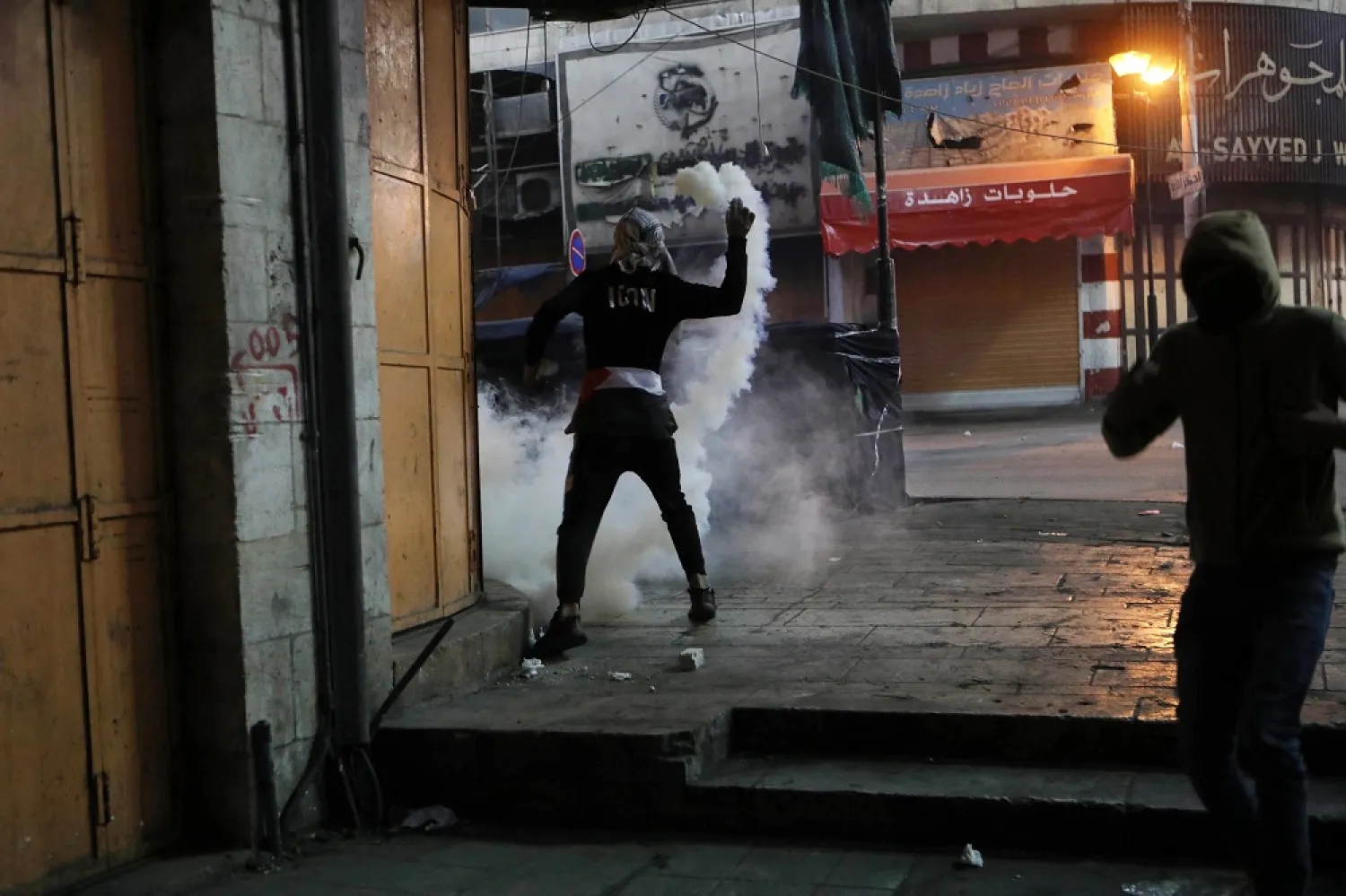The Israeli military says it intercepted a rocket fired from the Gaza Strip into Israeli territory on Monday.
It was the first time in months that a rocket has been fired into Israel from the blockaded Palestinian territory controlled by the Hamas movement. Israeli-Palestinian tensions have soared following clashes at a Jerusalem holy site and a wave of attacks and military raids.
Hours earlier, the leader of the "Islamic Jihad" group had issued a brief, cryptic warning, condemning Israeli "violations” in Jerusalem.
"The (Israeli) enemy’s threats to halt facilitations for Gaza can’t silence us from what’s happening in Jerusalem and the occupied West Bank," said Ziad al-Nakhala, who is based outside the Palestinian territories.
"Islamic Jihad" boasts an arsenal of rockets, but Israel holds Hamas responsible for all projectiles fired from the territory and usually carries out airstrikes in response.
Earlier on Monday, Israeli troops shot and wounded two Palestinians during clashes that broke out during an arrest raid in the occupied West Bank.
The Israeli military said it arrested 11 Palestinians in operations across the territory overnight. In a raid in the village of Yamun, near the city of Jenin, the army said dozens of Palestinians hurled rocks and explosives at troops.
Soldiers "responded with live ammunition" toward "suspects who hurled explosive devices," the military said. The Palestinian Health Ministry said two men were hospitalized after being critically wounded.
Israel has carried out a wave of arrest raids and other operations in recent weeks that it says are aimed at preventing further attacks after Palestinian assailants killed at least 14 people inside Israel. Two of the attackers came from in and around Jenin, which has long been a bastion of armed struggle against Israeli rule.
At least 25 Palestinians have been killed by Israeli forces in recent weeks, according to an Associated Press count. Many had carried out attacks or were involved in clashes, but an unarmed woman and a lawyer who appears to have been a bystander were also among those killed.
Israel captured the West Bank, along with the Gaza Strip and east Jerusalem, in the 1967 Mideast war. The Palestinians seek those territories for a future independent state.
Tensions have run high in recent days, during the confluence of the Muslim holy month of Ramadan and the week-long Jewish holiday of Passover.
Palestinian protesters and Israeli police have clashed at a flashpoint Jerusalem holy site, known to Muslims as the Al-Aqsa Mosque compound and to Jews as the Temple Mount.
Jordan and Egypt, which made peace with Israel decades ago and coordinate with it on security matters, have condemned its actions at the holy site. Jordan - which serves as custodian of the site - summoned Israel's charge d'affaires in protest on Monday.
An Arab party that made history last year by joining Israel's governing coalition on Sunday suspended its participation - a largely symbolic act that nevertheless reflected the sensitivity of the holy site, which is at the emotional heart of the century-old conflict.
Israel says security forces were forced to enter the compound after Palestinians stockpiled stones and other objects and hurled rocks in the direction of an adjacent Jewish holy site. The Palestinians and Arab states accused the police of storming the site in violation of longstanding arrangements known as the status quo.
Protests and clashes in and around the shrine last year helped fuel the 11-day war between Israel and Hamas.









